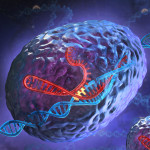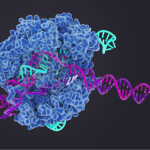 Billionaire Paul Allen has pledged $100 Million to fund life sciences research. The gift represents his initial commitment toward a 10 year plan for The Paul G. Allen Frontiers Group, a new Seattle-based organization recently launched. The initial round of grants includes a $1.5 million grant for molecular and cell biology researcher Jennifer Doudna, who co-invented the CRISPR gene editing technology. She will study new ways of editing genes by targeting RNA. Read more on the Forbes article.
Billionaire Paul Allen has pledged $100 Million to fund life sciences research. The gift represents his initial commitment toward a 10 year plan for The Paul G. Allen Frontiers Group, a new Seattle-based organization recently launched. The initial round of grants includes a $1.5 million grant for molecular and cell biology researcher Jennifer Doudna, who co-invented the CRISPR gene editing technology. She will study new ways of editing genes by targeting RNA. Read more on the Forbes article.
Doudna receives Canada’s Gairdner Award as CRISPR sweeps field
Jennifer Doudna, a faculty scientist in the Molecular Biophysics & Integrated Bioimaging Divison, as well as professor of molecular and cell biology and of chemistry at UC Berkeley, will share the 2016 Canada Gairdner International Awards with four others for their roles in discovering and re-engineering the CRISPR-Cas9 system to create today’s most-talked-about genetic tool. Read more at UC Berkeley NewsCenter.
Doudna Interview: Biochemist Meets Geneticists
Faculty biochemist Jennifer Doudna recently sat down with Maria Sterrett, a Genetics Society of America (GSA) member, for the Genes to Genomes blog series, “Behind the Podium.” The UC Berkeley professor and HHMI investigator is now famous for her contribution to the development of the CRISPR/Cas9 system for genome editing and will be one of the keynote speakers at The Allied Genetics Conference (TAGC), set to take place in Orlando this July. In the interview, Doudna stressed the pivotal role played in the scientific community by societies like GSA, saying how important it is “to foster a great community of scientists to exchange ideas.” She also observed that societies encourage younger scientists to get involved in the field and introduce them to the cutting edge advances of their field. Read her interview in Genes to Genomes.
Caribou Biosciences Receives Intellectual Property Rights for CRISPR Technology
In the latest round of intellectual property decisions from the US Patent & Trademark Office, Caribou Biosciences, co-founded by faculty scientist Jennifer Doudna, has been awarded intellectual property rights for CRISPR technology. The patent focuses on detecting areas in the genome that have been rearranged, versus genomic editing that would occur with the use of the associated Cas9 protein. CRISPR/Cas9 is a bacterial editing system that cuts and splices DNA sequences with unprecedented precision and speed and has become a technique used by scientists world-wide to study animal and plant cells. The patent dispute between the UC Regents and the Broad Institute was recently covered by the Los Angeles Times. More information about this recent decision can be found in The Daily Californian.
CRISPR/Cas9: Ready for Action
The CRISPR/Cas9 bacterial genomic editing system identifies and cleaves complementary target sequences in foreign DNA. CRISPR (clustered regularly interspaced short palindromic repeats)–associated (Cas) protein Cas9 begins its work by RNA-guided DNA unwinding to form an RNA-DNA hybrid and displacing a DNA strand inside the protein. Upon binding, Cas9 reorganizes into an R-loop complex that is necessary for it to perform its function. A recent article published in Science describes work done to uncover the structural basis of Cas9’s function.
- « Previous Page
- 1
- …
- 4
- 5
- 6
- 7
- 8
- Next Page »
Was this page useful?







